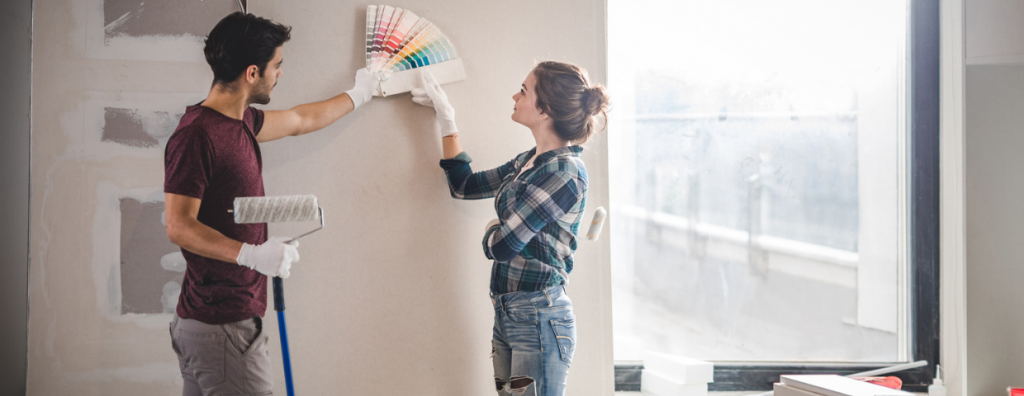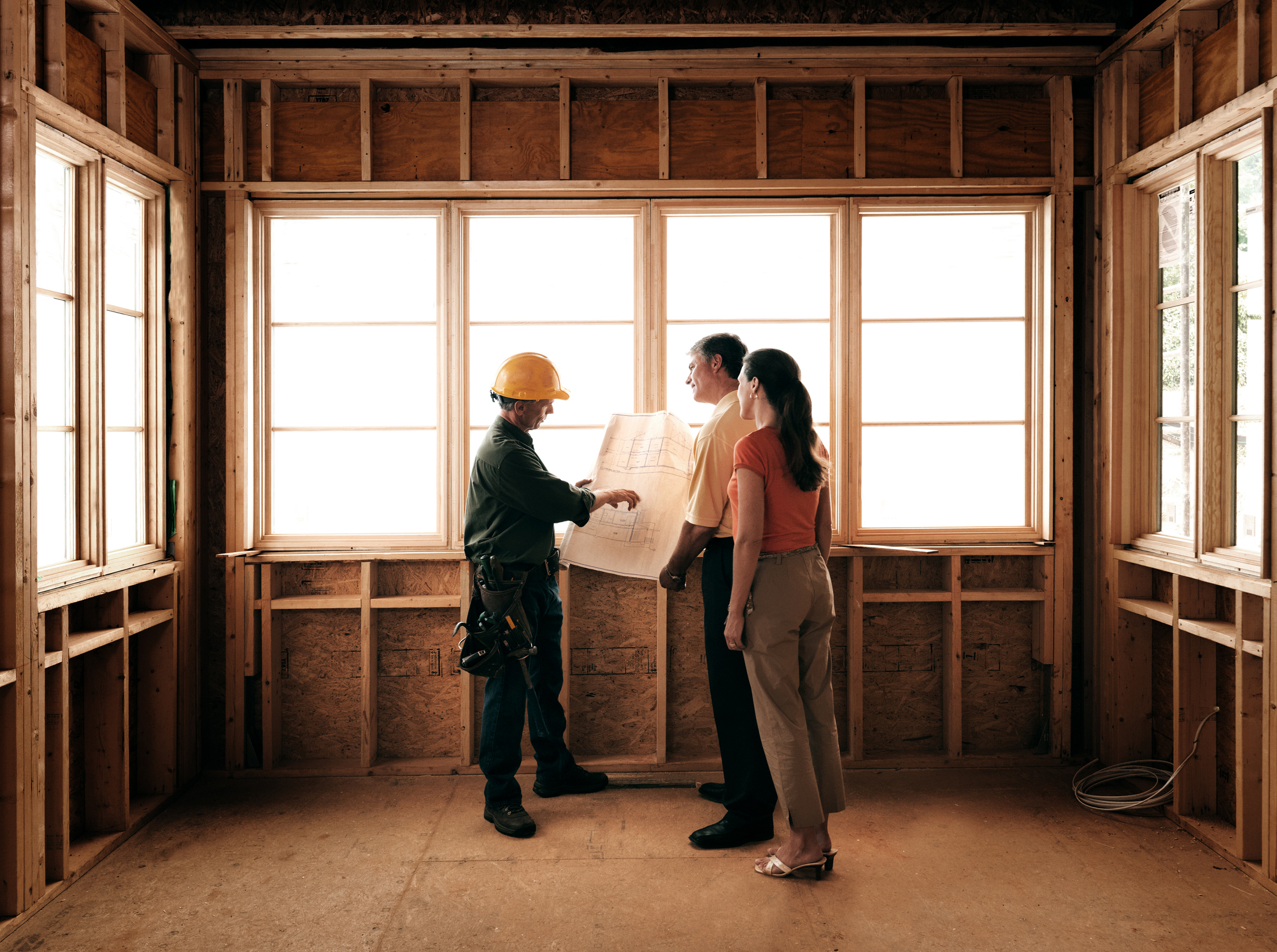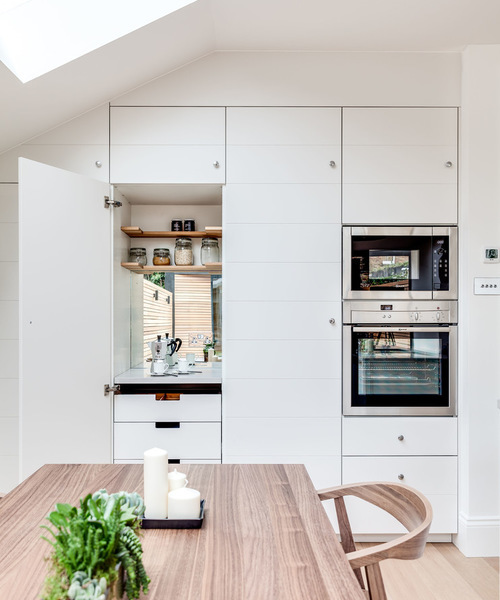Should I Remodel or Sell My Home As Is?

Homeowners who are preparing to sell are often faced with a dilemma about whether to remodel or sell their home in its current state. Each approach has its respective advantages and disadvantages. If you decide to remodel your home, it will likely sell for more; but the increased selling price will come at the cost of financing the remodeling projects. If you decide to sell without remodeling, you won’t spend as much money putting your home on the market, but the concern is whether you’re leaving money on the table.
Should I Remodel or Sell My Home As Is?
To answer this question, it’s important to understand the factors that could influence your decision and to work closely with your agent throughout the process.
Cost Analysis: Home Remodel vs. Selling Your Home As Is
Home Remodel
When you remodel your home before selling, you’re basically making a commitment to spend money to make money. So, it’s important to consider the kind of ROI you can expect from different remodeling projects and how much money you’re willing to spend. Start by discussing these questions with your agent. They can provide you with information on what kinds of remodels other sellers in your area are making and the returns they’re seeing as a result of those upgrades. This will help you determine the price of your home once your remodel is complete.
Then, there’s the question of whether you can complete you remodeling projects DIY or if you’ll need to hire a contractor. If hiring a contractor seems expensive, know that those costs come with the assurance that they will perform quality work and that they have the skill required to complete highly technical projects.
According to the Remodeling 2021 Cost vs. Value Report (www.costvsvalue.com1), on average, homeowners paid roughly $24,000 for a midrange bathroom remodel and about $26,000 for a minor kitchen remodel nationwide, with a 60.1% and 72.2% ROI respectively. This data shows that, for these projects, you can recoup a chunk of your costs, but they may not be the most cost-effective for you. A more budget-friendly approach to upgrading these spaces may look like repainting your kitchen cabinets, swapping out your old kitchen backsplash for a new one, refinishing your bathroom tub, or installing a new showerhead. Other high-ROI remodeling projects may allow you to get more bang for your buck, such as a garage door replacement or installing stone veneer. To appeal to sustainable-minded buyers, consider these 5 Green Upgrades that Increase Your Home Value.

Image Source: Getty Images – Image Source: stevecoleimages
Selling Your Home As Is
Deciding not to remodel your home will come with its own pros and cons. By selling as is, you may sell your home for less, but you also won’t incur the cost and headache of dealing with a remodel. And since you’ve decided to sell, you won’t be able to enjoy the fruits of the remodel, anyway. If you sell your home without remodeling, you may forego the ability to pay down the costs of buying a new home with the extra money you would have made from making those upgrades.
Market Conditions: Home Remodel vs. Selling Your Home As Is
Local market conditions may influence your decision of whether to remodel before selling your home. If you live in a seller’s market, there will be high competition amongst buyers due to a lack of inventory. You may want to capitalize on the status of the market by selling before investing time in a remodel since prices are being driven up, anyway. If you take this approach, you’ll want to strategize with your agent, since your home may lack certain features that buyers can find in comparable listings. In a seller’s market, it is still important to make necessary repairs and to stage your home.
In a buyer’s market, there are more homes on the market than active buyers. If you live in a buyer’s market, you may be more inclined to remodel your home before selling to help it stand out amongst the competition.
Timing: Home Remodel vs. Selling Your Home As Is
Don’t forget that there is a third option: to wait. For all the number crunching and market analysis, it simply may not be the right time to sell your home. Knowing that you’ll sell your home at some point in the future—but not right now—will allow you to plan your remodeling projects with more time on your hands which could make it more financially feasible to complete them.
For more information on how you can prepare to sell your home, connect with a local Windermere Real Estate agent below:
- “© 2021 Hanley Wood, Complete data from the Remodeling 2021 Cost vs. Value Report can be downloaded free at www.costvsvalue.com.”
How to Live Through a Home Remodel

Posted in Houzz.com and Living by Houzz.com
If you’re thinking about remodeling or are about to break ground on your first renovation, odds are you probably know a bit about how the project is going to go. After all, you’ve watched a few TV shows, your cousin’s husband is a general contractor and the guy you sit close to at work tells you every detail of how his wet bar is coming together. So you pretty much know all there is to know, right? Not so fast.

Live Remodel 1: JLB Property Developments, original photo on Houzz
As much as you may be able to glean from friends and family, articles and TV, there’s no experience quite like personally getting down into the dirt (more on this later) of a remodel. And what you don’t often hear about are the harsh realities of wading through such a detailed, often stressful project.
We’ve written before about how remodeling a home is the ultimate litmus test for your relationship. And that’s why I think understanding a few of the common negative things that happen during remodel is a vital component of being prepared.
I’ve not only braved a few remodels myself, but I’ve worked on the other end as a general contractor, and while I can’t claim I know everything, I do think I have a lot to share. Here are a few things you should know about what it’s really like to live through a renovation.
Related: How to Survive the ‘Punch List’ Phase of a Remodel

Live Remodel 2: Turnbull Griffin Haesloop, original photo on Houzz
It Will Upset Your Daily Schedule
Say, for example, every day before you leave for work you like to brew a cup of tea, settle in with your tablet at your breakfast nook and prepare for the day by going through your emails.
Now picture this exact routine while your kitchen and breakfast nook is under construction. The peace and tranquility (and cleanliness!) of your morning retreat is no more.
You may have to alter your daily routine a bit by finding a coffee shop near your house where you can relax, or by relocating to your bedroom for your beloved cup of chai.
Creatures of habit, be warned: You may have to (take a deep breath here) change a couple of your habits while your remodel is going on.
Related: Remodeling Your Kitchen? Move Your Coffee Station to Your Living Room
Contractors often like to take up shop (if permitted) in garages, as they are often places where they can make a bit more of a mess and noise while remaining close to the job site. If you want certain parts of your home, yard or garage to remain sacred, talk with your contractor about areas where work can and cannot occur.

Live Remodel 3: Kasper Custom Remodeling, LLC, original photo on Houzz
There Will Be Dust
This one may be a no-brainer to some and a shock to others (again, take a deep breath). Some contractors will give hints that the project will get dusty, such as: “We will take measures to put up dust barriers around the area of the remodel” or “we will keep a broom and dustpan on site at all times.”
But no matter how many protective products are put up, there are certain stages of construction that can get intense (for example, sanding down drywall). Not only does dust get thrown into the air while work is going on, but it stays floating around in the air for a while afterward. And floating dust’s favorite pastime is, regrettably, travel.
It may travel to different areas of the house, settling into your dog’s bed, onto your kitchen counters and even into your lungs. You may be thinking, “So what? I breathe dust all the time. That’s just life.” This is true, but the dust you’re usually inhaling is dirt and dead skin cells and other organic stuff. Remodeling dust can be made of not-so-nice things such as chemicals found in paint, fiberglass insulation or cement.
Have a conversation with your contractor to see whether he or she plans on using an air scrubber during your remodel as well as dust barriers and traditional cleaning. This combined system helps to prevent dust from traveling, and it also takes a lot of the nasty particulate out of the air before it has time to invade other areas of your house.
While most contractors genuinely work to keep your home clean, safe and comfortable during a remodel, sometimes dust control isn’t a top priority. It will quickly become front and center in your home, though, if it isn’t properly managed from the start.
Related: Bathroom Renovation? Get Ready for the Day in Peace With a Bedroom Vanity

Live Remodel 4: studiovert design, original photo on Houzz
It Can Be an Emotional Roller Coaster
Every person handles stress and emotions differently, but the fact is that having a bunch of unfamiliar faces tear your house apart before your very eyes is stressful. I know that sounds like a bit of hyperbole, but when you’re actually living through a remodel, that’s exactly how it feels.
It can be tough to keep your head on straight when you’re trying to make selections for tile and lighting fixtures that suit your budget while simultaneously worrying about whether the project will end on time. Add family and work life to that? Yikes.
Now that I’ve worked you up, let me provide some peace of mind: Contractors know what they are doing. They will do everything they can to make sure you are happy with your home and the job is completed in a timely manner. Your local YMCA provides yoga classes, which can be very helpful with managing stress. Feeling better?
Accept that you will feel some stress and some emotions, and allow yourself to be OK with that. It’s a part of the process. Freaking out about the fact that you’re freaking out will only make things, well, freakier.

Live Remodel 5: Amanda Armstrong Sava, original photo on Houzz
Now that I’ve shaken up any romanticized beliefs you may have held about remodeling, let me instill a bit of faith by saying that it’s not all bad. Remodeling can actually be quite pain-free, in fact, if you communicate. I know I’ve harped on this before, but I can’t stress the importance of it enough. Talk with your contractor before work starts about things such as scheduling, dust control and communication preferences. It makes a world and a half of difference.
So, yes, there will be dust, and yes, you might get tired of seeing your project manager every day, but there will be days when you come home after work and see new countertops being installed, and it will stop you dead in your tracks because — whoa — those look great!
Other times you might have the house to yourself for a second and you can poke around to “ooh” and “ahh” over all of the new, shiny things filling your beloved home. So not only is it not all bad, some of it is actually pretty good. So good, in fact, that you might even start thinking about your next project before the first one even ends.
By Hannah Kasper, Houzz
 Facebook
Facebook
 Twitter
Twitter
 Pinterest
Pinterest
 Copy Link
Copy Link
